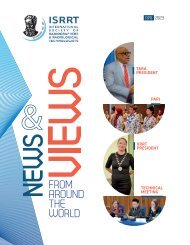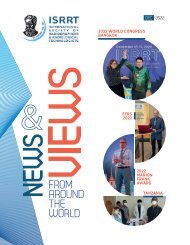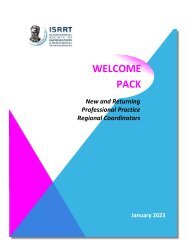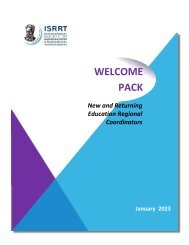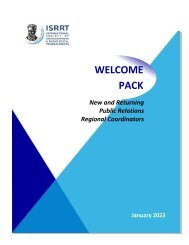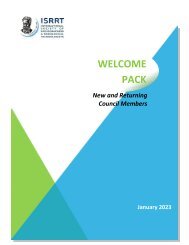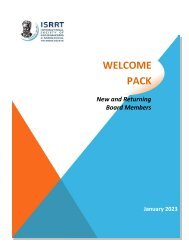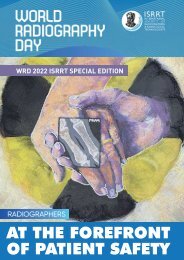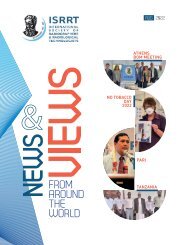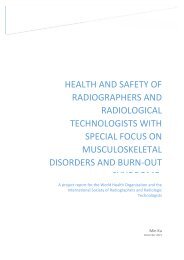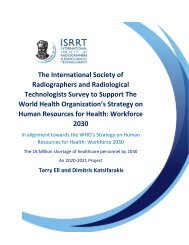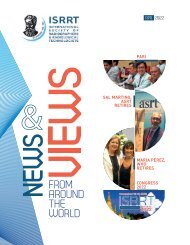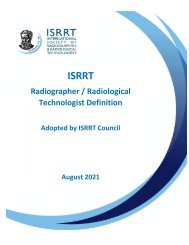ISRRT_COVID-19_book
Create successful ePaper yourself
Turn your PDF publications into a flip-book with our unique Google optimized e-Paper software.
Delivery of the program - continuation of academic teaching and learning activities<br />
The fundamental difficulty was to continue teaching and learning when students and staff<br />
were physically unable to be present in the university. Before the <strong>COVID</strong>-<strong>19</strong> pandemic, the<br />
Department did not use the Learning Management System (LMS)/ Moodle effectively to<br />
facilitate the teaching and learning process and it was only used for course management.<br />
Therefore, as a preliminary step, the Department of Radiography/Radiotherapy has<br />
established Moodle accounts for all lecturers and students and provided access to the theorybased<br />
subjects. Several initiatives have been implemented to improve the communication<br />
between lecturers, mentors and students, including the use of social media platforms<br />
(Face<strong>book</strong>, WhatsApp and Viber) to facilitate this connection.<br />
Initially, the Department instructed lecturers to upload all learning materials to Moodle in an<br />
asynchronous method (recorded sessions), but later on, online education was supposed to be<br />
conducted in a synchronous method (live session) via various video conferencing platforms<br />
as it can ensure that all students learn the same materials in the same way. However, lecturers<br />
were asked to instantly covert their lessons to online format without providing enough<br />
training or infrastructure. Because of this, it was initially difficult for all lecturers in the<br />
Department to initiate their academic work and effectively utilize digital platforms.<br />
Eventually, students and lecturers were given access to online tutorials to help them improve<br />
their skills for using Moodle and other video conferencing platforms effectively. However, this<br />
situation presented many additional challenges for both lecturers and students. Sri Lanka is a<br />
middle-income country and, therefore, does not have highly developed technological<br />
infrastructure facilities. This BSc in Radiography program has students from all over the<br />
country and half of them were from economically depressed rural areas. Therefore, most of<br />
the students lacked reliable and stable in-house internet connections and adequate<br />
technology to participate in online education. Further, the high expenses of internet services<br />
were a top challenge encountered during online education. The Sri Lankan Government made<br />
many efforts to reduce the cost of online education for both teachers and students. As a part<br />
of this effort, the Government was able to come to an agreement with all internet providers<br />
to provide free access to university web services through the Lanka Education and Research<br />
Network (LEARN) 8 . This created the opportunity for all the university lecturers and students<br />
68




